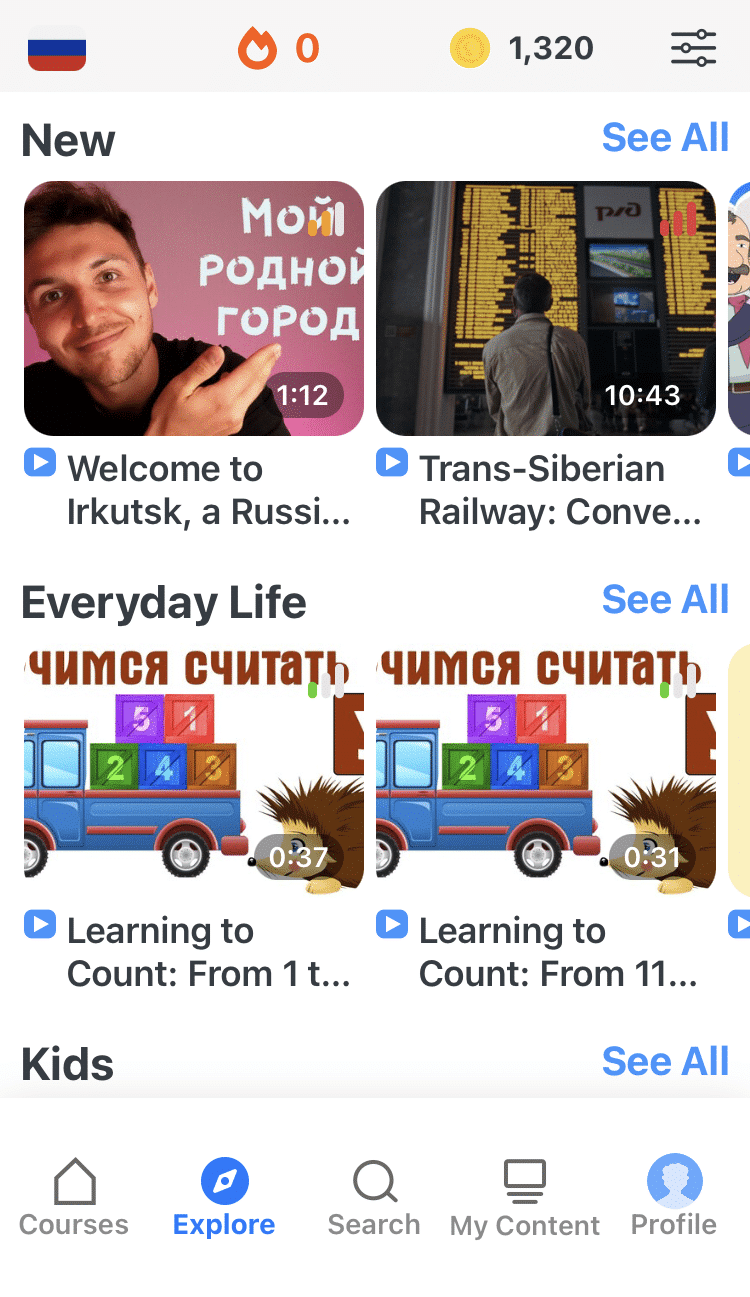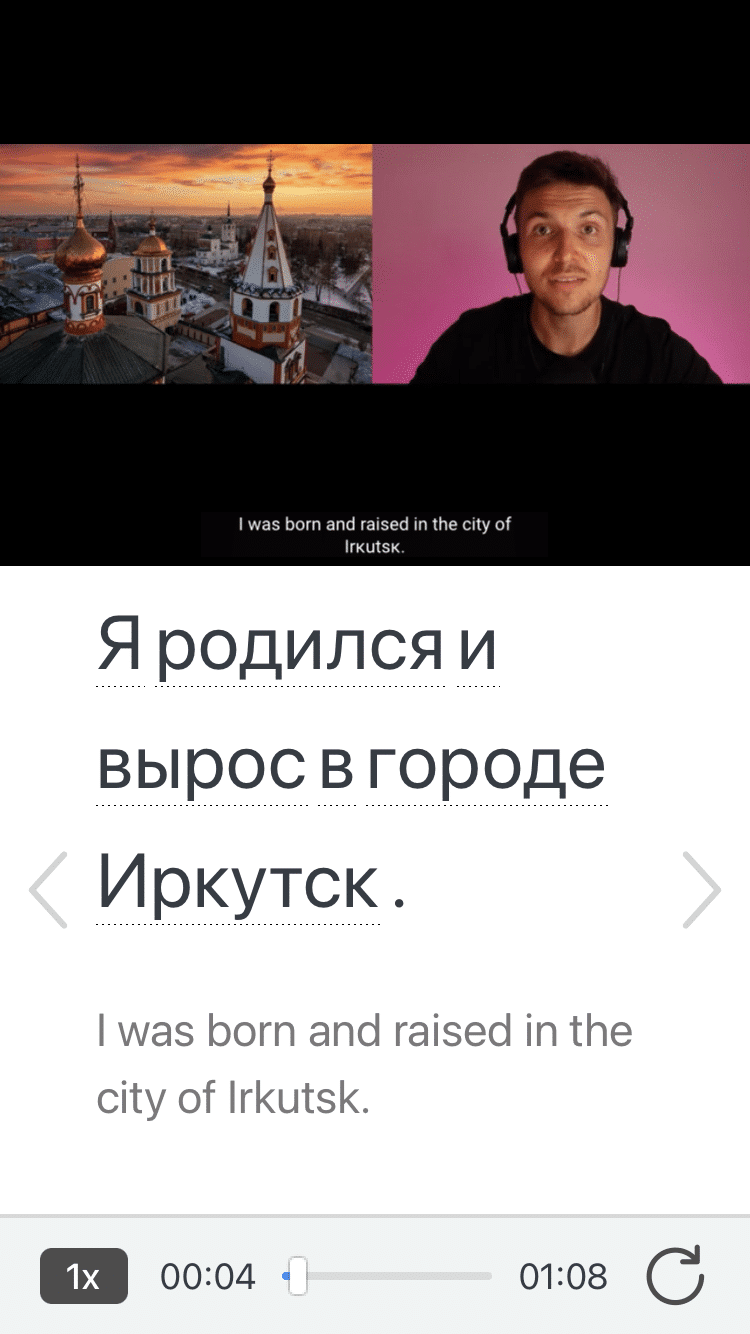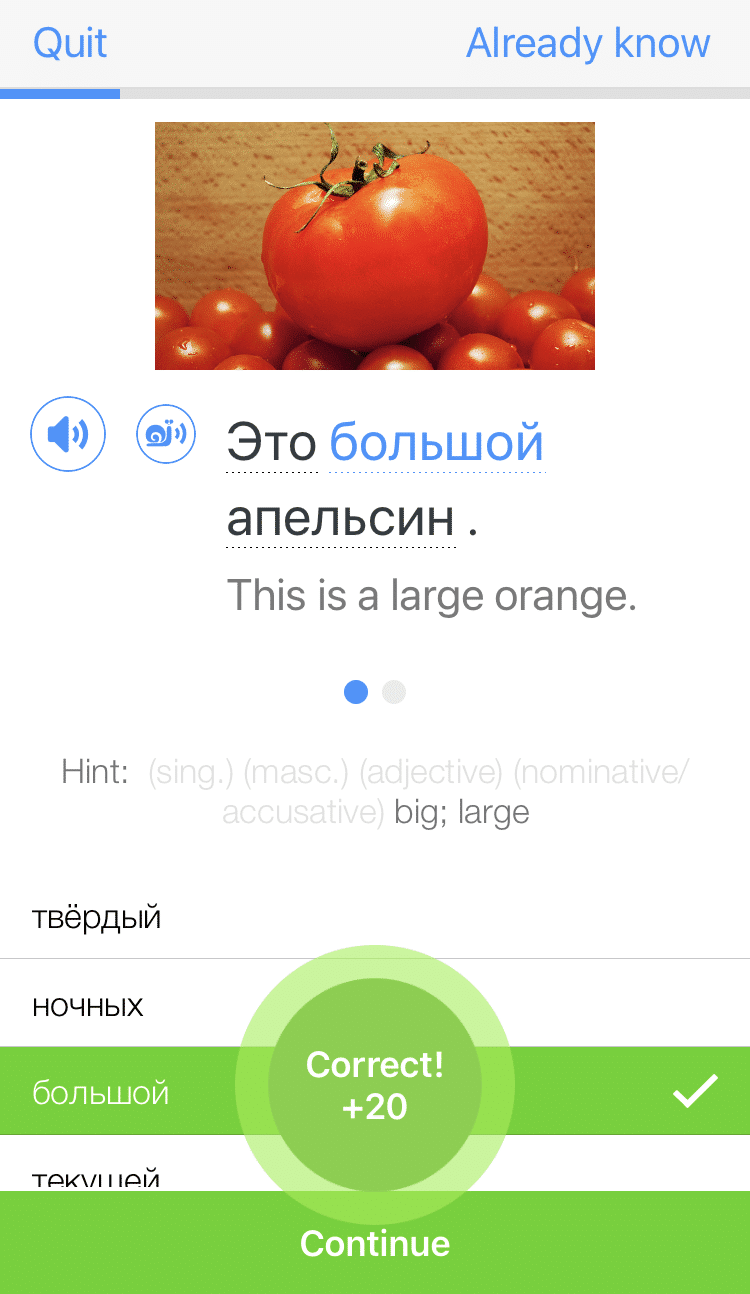
How to Say Sorry in Russian
Expressing remorse or apologizing is an important skill to master when learning a new language.
After all, miscommunications occur frequently and cultural differences may cause someone’s behavior to be misinterpreted as rude.
Luckily, there are many ways to say sorry in Russian.
Whether you plan to apologize often when talking to a native speaker or quietly write it in an email, read on to learn how to say sorry in Russian.
Contents
- Two Verbs to Say “Sorry” in Russian: Извинить and Простить
- Commonly Used Phrases for Apologizing in Russian
- Responding to Apologies in Russian
- And One More Thing...
Download: This blog post is available as a convenient and portable PDF that you can take anywhere. Click here to get a copy. (Download)
Two Verbs to Say “Sorry” in Russian: Извинить and Простить
The majority of apologies made in Russian will contain either извинить or простить . Извинить and Простить are infinitive forms and to be used in sentences to say “I’m sorry” you need to conjugate them.
One of the most popular ways to say “sorry” in Russian is извиняюсь. Извиняюсь is a reflective first-person present verb, meaning “I’m sorry” or “I’m apologizing” and it works in both formal and informal situations but generally not in writing.
Извините and Простите are conjugated forms of the verbs извинить and простить.
It’s important to take note that both verbs can be adapted for informal or formal contexts.
Formal: Извините and Простите (Sorry and Excuse/ Pardon)
In formal situations when you want to say “I’m sorry”, “Pardon me” or “Excuse me”, in Russian, you can use two verbs that are synonyms: Извинить and Простить .
Use these verbs in formal situations, when the apology is for something small or when the apology is called for due to social expectations.
Извините меня / Простите меня (Excuse me/Pardon me) are often used when passing closely to someone or bumping into a stranger by accident.
Informal: Извини and Прости (Sorry and Excuse/Pardon)
To say sorry informally, use the verbs Извини and Прости , they both mean “sorry”.
For instance, извини or прости would be used when addressing a friend, family member or loved one.
However, you shouldn’t use those short forms for a stranger, boss, elder or anyone for whom you should demonstrate respect. In formal situations, be sure to use извините and простите .
Examples:
Извините, что беспокою Вас . (Sorry to bother you.)
Извините, вы знаете, как дойти до магазина? (Excuse me, do you know how to walk to the shop?)
Прости меня, моя любовь . (Forgive me, my love.)
Прости меня, отец, ибо я согрешил. (Forgive me, father, for I have sinned.)
Using Извинить and Простить in Context
A simple way of understanding the difference is that извинить is often translated as “to excuse” whereas простить is more often translated as “to forgive.”
Простить (forgive me) is commonly used when someone has been offended and the person inflicting the offense wants to acknowledge what they’ve done and fix it. Простить is also used more often in written form, whereas извинить is preferred when speaking.
Извинить comes from two words: вина (fault) and the prefix из, a Russian preposition that means “out of.” When the prefix and stem come together, извинить means to remove the fault.
Commonly Used Phrases for Apologizing in Russian
To give you more context, here are some examples of common phrases and sentences you can use to say “I’m sorry” in Russian. Try to see them in use by native Russian speakers to better understand when to use them. For example, you can see them in the videos on FluentU, which come paired with learning tools.
FluentU takes authentic videos—like music videos, movie trailers, news and inspiring talks—and turns them into personalized language learning lessons. You can try FluentU for free for 2 weeks. Check out the website or download the iOS app or Android app. P.S. Click here to take advantage of our current sale! (Expires at the end of this month.)
Извините/Простите, пожалуйста (I’m sorry / Excuse me / Forgive me, please)
Извините, пожалуйста and Простите, пожалуйста convey that the speaker is being simultaneously apologetic and deferential. This is the most common phrase used to apologize in Russian and can be used as a default phrase in almost any situation.
You’re probably already familiar with the term пожалуйста (please). Here, combining пожалуйста with one of the words above makes for a very effective apology with a formal tone:
Простите, пожалуйста, что перебиваю Вас. (Please forgive me for interrupting you.)
It can also be used to get someone’s attention or request something, especially with Извините:
Извините, пожалуйста. Вы не могли бы передать соль? (Excuse me please. Can you pass the salt?)
Да, конечно. (Yes, of course.)
Мне очень жаль (I’m very sorry)
This is another catch-all phrase that’s valuable to know because it can be used to apologize or express regret or condolences.
Мне очень жаль, но я не согласен. (I’m very sorry, but I disagree.)
Мне очень жаль may be used to mean “I’m very sorry” in the context of a funeral. You can also substitute it with the phrase Мои соболезнования (My condolences).
Сожалею (I regret)
You can use this word to voice regret. For example:
Сожалею, что не проводил больше времени с отцом до его смерти. (I regret I didn’t spend more time with father before his death.)
Сожалею, что не учился больше в университете. (I regret not studying more during university.)
Сожалею is also an option for those looking to express condolences:
Я сожалею о Вашей утрате. (I am sorry for your loss.)
It’s important to note that Сожалею is commonly considered formal. It’s frequently used in official documents, formal speeches or in the presence of high-ranking, political leaders.
Извините / Простите за беспокойство (Sorry for bothering you)
The word беспокойство means worry, concern, anxiety, trouble or disturbance.
As such, this sentence is frequently used when you’re interrupting someone and taking their time away from another task. This sentence acknowledges that you’re imposing on someone or distracting them from something that may be more important.
Простите за беспокойство. Вы знаете, где находится офис директора? (Sorry for bothering you. Do you know where the director’s office is located?)
Note that извините would also be appropriate in this sentence; merely substitute it for простите .
Прошу прощения за… (I apologize for…)
Inevitably, you’ll want to apologize for something in particular.
Прошу прощения is typically a formal apology and is often followed by за + accusative case to apologize for just about anything:
Прошу прощения за разбитое зеркало. (I apologize for the broken mirror.)
For many of us, life gets in the way, so it’s common for us to need to apologize for running late.
Russians aren’t known for being the most punctual people, but this is a valuable phrase to know nonetheless. Chances are at some point you’ll be late to meet someone and need this phrase, or you may hear this from a tardy companion upon his arrival:
Прошу прощения за опоздание. (I apologize for being late.)
Alternatively, Прошу прощения may be used with за то, что which essentially means “for the fact that.” For example:
Прошу прощения за то, что мы забыли твой день рождения. (I apologize for [the fact that] we forgot your birthday.)
You can also simply leave out the за то, что and put a comma in place instead:
Прошу прощения, что мы забыли твой день рождения.
Прошу прощения, я неправильно понял. (I beg your pardon, I misunderstood.)
Now that you know how to give an apology, you should also be able to receive and respond to one.
Responding to Apologies in Russian
Apologizing is a two-way street. If you’re saying “I’m sorry” or “excuse me” in Russian, you’ll want to know what response to look for, to know if your apology has been accepted.
Most of these replies can be used in formal or informal situations.
Я прощаю Вас / тебя (I forgive you)
It’s not terribly common to say “I forgive you” as it’s quite formal. But this phrase is used occasionally. For example, you might use it to talk to your Russian teacher, since student-teacher relationships in Russia are very formal by nature. If you were to arrive late to class, you’d most likely say:
Прошу прощения за опоздание. (I apologize for being late.)
To which the teacher, particularly one who lives by Old World standards might reply:
Я прощаю Вас. (I forgive you.)
We all do something wrong from time to time and ask for forgiveness after realizing that we were wrong. In Russian, when you want to say “I forgive you” to a friend who’s apologizing (informal situation), you should use “Я прощаю тебя”:
Я прощаю тебя за то, что ты мне сделал. (I forgive you for what you did to me.)
Всё в порядке (Everything is ok)
Perhaps you’re assigned a task by your boss and fulfill the requirements incorrectly. You might say:
Прошу прощения, я неправильно понял инструкции. (I beg your pardon, I misunderstood the instructions.)
Being a forgiving boss, he might reply:
Всё в порядке. (Everything is ok.)
Ничего страшного (Nothing’s wrong / It’s no big deal)
This phrase is meant to simply brush off a minor incident. For instance, if you forget a friend’s birthday, you could say:
Извини, я забыл твой день рождения. Я не купил тебе подарок! (Sorry I forgot your birthday. I didn’t buy you a present!)
And your friend could respond:
Ничего страшного. (Nothing’s wrong. It’s alright.)
Or even:
Серьёзно, ничего страшного. (Seriously, it no big deal.)
Да Ладно/ Да ничего (Well, it’s ok/ Well, no problem)
Here’s another great option for informal situations.
If you’ve ever tried to cook a meal for a new love interest, you may find it doesn’t go perfectly the first time. In which case, you may need to say:
Мне жаль, что еда была слишком солёная. (I’m sorry the meal was too salty.)
Most likely, your date will appreciate your effort and respond:
Да ладно (Well, it’s ok.)
Бывает (It happens)
Similarly, if you live a hectic lifestyle, your family and friends may be accustomed to your forgetfulness.
My husband was once supposed to pick up our 8-year-old from school. He drove to the school and received a phone call before he got out of the car, so he took the call, and when it was over, he drove home without our daughter!
Apparently, he wasn’t the first parent to do this.
He returned to the school, and apologized to the teacher who graciously looked after our daughter:
Простите! Мне позвонили и я забыл, что делал. Я поехал домой без дочери. (I’m so sorry! I received a phone call and forgot what I was doing. I went home without my daughter.)
To which the teacher calmly shrugged her shoulders and said:
Бывает. (It happens.)
Probability tells us that at some point we’ll all be виноваты (guilty) of something. The above phrases should help you convey your apologies to whomever you offend.
And when the shoe’s on the other foot, try your best to show forgiveness. After all: Бывает (It happens.)
Download: This blog post is available as a convenient and portable PDF that you can take anywhere. Click here to get a copy. (Download)
If you love learning Russian and want to immerse yourself with authentic materials from Russia, then I should also tell you more about FluentU.
FluentU naturally and gradually eases you into learning the Russian language and culture. You'll learn real Russian as it's spoken by real Russian people!
FluentU has a very broad range of contemporary videos. Just a quick look will give you an idea of the variety of Russian-language content available on FluentU:
FluentU makes these native Russian videos approachable through interactive transcripts. Tap on any word to look it up instantly.
Access a complete interactive transcript of every video under the Dialogue tab. Easily review words and phrases with audio under Vocab.
All definitions have multiple examples, and they're written for Russian learners like you. Tap to add words you'd like to review to a vocab list.
And FluentU has a learn mode which turns every video into a language learning lesson. You can always swipe left or right to see more examples.
The best part? FluentU keeps track of your vocabulary, and gives you extra practice with difficult words. It'll even remind you when it’s time to review what you’ve learned. You'll have a 100% personalized experience.
Start using the FluentU website on your computer or tablet or, better yet, download the FluentU app from the iTunes or Google Play store. Click here to take advantage of our current sale! (Expires at the end of this month.)
And One More Thing...







